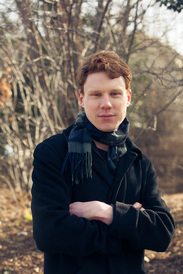 Bryce T. Bauer is the author Gentlemen Bootleggers: The True Story of Templeton Rye, Prohibition, and a Small Town in Cahoots. After I reviewed his book, I contacted him with some questions about Prohibition, whiskey in Iowa, and what he is currently drinking. Why this story: "Well, being from the area, I always heard stories of Templeton rye growing up. I knew people had a lot of great anecdotes of making it, and selling it, and drinking it. Those were all very appealing. But it wasn’t until we started collecting those stories, and people from the community began contributing all the information that they had, that we realized just how rich it was." On the importance of recording the Templeton rye history: “It’s one of the most unique stories to come out of the Prohibition-era — most small towns in the Midwest were far more likely to be supporters of Prohibition than major violators of it. There’s also the German-American history, which, as someone whose heritage is German, I knew nothing about starting out but clearly was so important in my grandparents’ and great-grandparents’ experiences. It’s also a story of rural America, specifically of the rural Middle West, which is in so many ways a cradle of American civilization and yet it is grossly neglected, and when it does enter into popular culture, it is usually as hyperbolic parody.” On what he didn’t expect to learn during the research:
“I had no idea the German-American conflict was as charged, especially in my community, as it was. I also knew nothing of the Ku Klux Klan in Iowa. Perhaps the greatest find for me, though, was learning that one of the Midwest’s best Prohibition agents and a constant antagonist of the Templeton rye bootleggers was the former sheriff of the very county I grew up in.” On the local reaction to the book after events in Carroll and Templeton: “People were really enthusiastic to learn more about a history, the contours of which they, of course, already knew well…We also had a lot people who attended the events who came up to us afterwards to share their own story — be it of their own family’s bootlegging, or of their or their relatives’ experience buying it.” On tasting whiskey made from the “original” Templeton rye recipe: “A long time ago I had some bootleg whiskey that purported to be Templeton rye, made in the original style. I have no reason to question its authenticity, but one should always question the authenticity of bootleg liquor. It was, however, good, though I remember wishing it had been aged a bit longer.” On his father’s connection to Templeton Rye: “He registered the trademark and began working to put together the company, bringing in most of the people who still run it today. He left long before the company became the company it is today and long before I began working on the book.” On the similarities of the Prohibition campaign and legalization of marijuana: “Fundamentally they are both questions that I don’t expect to be resolved anytime soon of individual liberty and responsibility, and the role of the state in defining what is moral behavior and whether different communities should be allowed to have different conceptions of moral behavior. They both also trigger a deeply seated anxiety in the American psyche over aberrant behavior and inhibition and pleasure-seeking, which I don’t expect to be resolved anytime soon, either.” Favorite whiskey? “I like ryes a lot — and Scotch — but especially rye. And I always love to try new ones. It would be illegitimate to name a favorite. But I can tell you that right now in my liquor cabinet — behind the gin, because I have a particular love of Negronis in the summer — are bottles of Templeton and Temperance Trader (the later is not technically a rye, but it has quite a lot of rye in its mash bill). There would also be a bottle of Whistle Pig in there, but it disappears so quickly it’s hard to keep around.” Favorite way to drink it. “Neat. Maybe with a splash of water. “ Favorite whiskey moment. “I remember in college when one of my best friends gave me my first glass of Scotch. It was Laphroaig. Up until then, I’d never known anybody who drank Scotch. I had no idea you could have something that tasted so fully of smoke. It was a really neat experience and made me pay attention a lot more to what I was drinking.” On making his own moonshine or home brew: “Ah, no. I’d love to. But I read Max Watman’s book Chasing the White Dog (full disclosure: he reviewed my book) about his attempts at distilling. In many instances most of what he made was a mess and he wasn’t working in an NYC apartment. So for the sake of my deposit and my neighbors, I plan to stick with what I can buy, for the time being at least.” Bryce was also involved in writing and producing a documentary on the topic, Whiskey Cookers: The Amazing Story of the Templeton, Iowa Bootleggers, which has been submitted to film festivals around the country. Iowa Public Television will also be airing the documentary later this year. Comments are closed.
|
Archives
November 2017
|

 RSS Feed
RSS Feed
